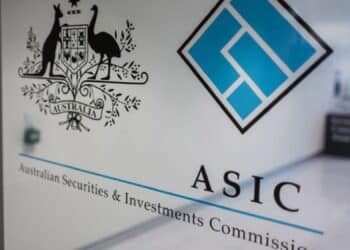With the financial advisers register (FAR) no longer distinguishing those who have used the experienced pathway to provide advice, how will this affect consumers and employers?
The experienced provider pathway allows financial advisers with at least 10 years of experience between 2007 and 2021 to meet qualification standards without further education. They must also have a clean disciplinary record as of 31 December 2021.
To be eligible to access the pathway, an adviser should also have passed the financial adviser exam by 1 January 2022, or 1 October 2022 if they were eligible for the exam extension.
ASIC recently reminded Australian financial services licensees (AFSLs) that from 1 July 2024, they are required to notify the regulator by lodging a notice where they have received a written declaration from an adviser who is eligible to access the pathway.
It is understood the FAR will not distinguish between whether an adviser is qualified through further education or through the experience pathway.
With the first week of the new financial year behind us, two industry professionals have assessed how the pathway will impact the FAR and relevant parties.
Colin Williams, founder of Wealth Data, clarified that from 1 July 2024, adviser qualifications are no longer shown as “approved” and by default “not approved”. Moreover, advisers who are providing advice under the experience pathway will not be identified as such.
“The change is important, especially at ASIC’s Moneysmart ‘Check a Financial Adviser’ page, which has been getting some 40,000 page views per month – that’s a lot,” Williams said.
When accessing the FAR on the Moneysmart website, users can search by name, number or ABN for an adviser. A list then appears with the adviser’s current status displaying as either “ceased” or “current”.
Williams continued: “Prior to this change, the ‘consumer’ would see a list of adviser qualifications and some would be shown as ‘approved’. The results would have caused some confusion for the consumer, as some licensees would enter basic qualification updates for their advisers as ‘approved’, while other advisers had very good qualifications but not showing up as approved.”
He reminded licensees to still identify their advisers’ qualifications as approved or not approved, with all advisers expected to be approved in one form or another from 1 January 2026, when ASIC is set to ramp up its enforcement action.
Anne Palmer, general manager for education at the Financial Advice Association Australia (FAAA), believes the change is a positive move for consumers accessing advice, but warned employers to continue doing their due diligence.
“From a client’s point of view, at the end of the day, all they want to know is whether that adviser is registered and legally able and qualified to provide advice. I doubt consumers will be going onto the FAR and looking at their specific qualifications,” she explained.
“Employers should always do their due diligence, but if someone has come through the experience pathway, they are recognised and completely able to provide advice so it shouldn’t be an issue.
“From a practical point of view, we have lost a lot of experience, and it’s good we can retain some, but moving forward, we are a profession, and I’m an advocate for education.”
Last month, AFSL compliance law firm Holley Nethercote warned there is potential for the experience pathway to be abused if licensees fail to do due diligence to check whether an individual has the necessary 10 years’ experience.
This is due to there being no requirement for AFSLs or ASIC to check if the individual does indeed have 10 years of experience on the FAR.
“You would hope there aren’t unethical people, but if there is, then they could absolutely put their hand up and pretend. There’s a risk an adviser could lie and be misleading, and that would be a breach of the law, and a licensee has an obligation to take reasonable steps to comply with the financial services law,” commented Holley Nethercote partner Sam Hills.





